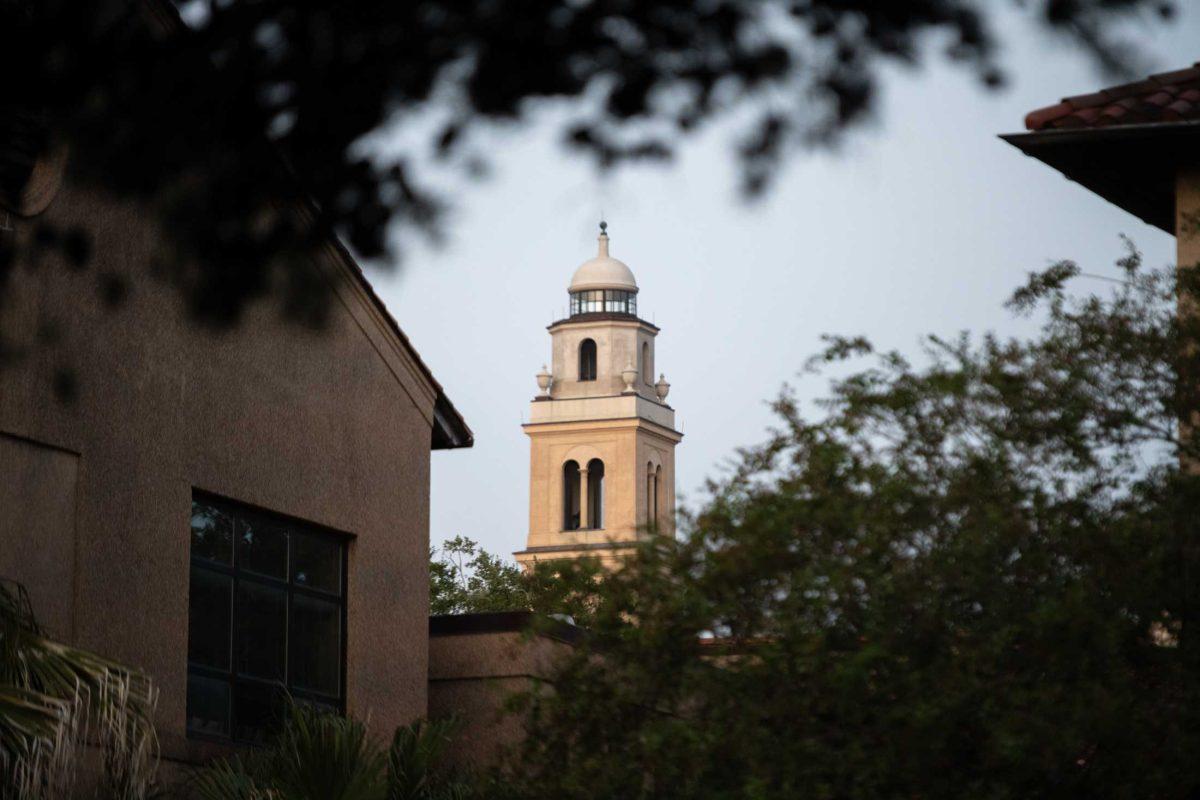LSU has been sanctioned in federal court for failing to preserve data on tennis coaches’ cell phones amid a Title IX lawsuit.
Ten former LSU students brought the lawsuit against the university and its athletics department in 2021 for their alleged failures to investigate claims of sexual violence. Three of those plaintiffs include former LSU tennis players Jade Lewis, Abby Owens and Kennan Johnson.
USA Today reported in November 2020 that co-head tennis coaches Julia and Michael Sell allegedly ignored reports that one of their players had been raped and another had been the victim of dating violence in 2017 and 2018.
In a 2020 Reveille report, former players involved in the lawsuit described a “toxic” culture under Julia Sell rife with weight shaming, mental abuse and injury negligence.
“You shouldn’t go play a sport you love at your dream school and leave wishing you never went there,” Johnson told the Reveille in 2020.
The Sells were listed as defendants when the lawsuit was first filed but were dismissed along with other defendants in January 2022. The LSU Board of Supervisors is the sole remaining defendant.
MORE TITLE IX: Is LSU’s Title IX Office affected by new power-based violence legislation? Not really, coordinator says
Though they are no longer defendants, the Sells are still “key players” in the lawsuit, U.S. Magistrate Judge Scott Johnson said in the Sept. 29 order sanctioning the university.
“Given the Sells’ role in this litigation, it stretches the bounds of reason to think their LSU-issued cell phones would contain no relevant communications,” Johnson wrote.
That data may have helped the plaintiffs prove their case, and the court determined LSU “did not take reasonable steps to preserve the Sells’ text communications.”
For that reason, Johnson determined, LSU must “pay reasonable expenses, including attorney’s fees and costs,” that the plaintiffs incurred because of the university’s failure to preserve the cell phone data.
The Sells left their jobs at LSU and returned their university-issued cell phones around April 2022, according to court documents. The plaintiffs issued a subpoena requesting text messages from those phones in July of that year.
The Sells said they couldn’t provide the data as they no longer had the phones. In September 2022, the plaintiffs asked LSU for the phone data. A month later, they were told the data wasn’t available.
The plaintiff’s attorney inspected the phones in January 2023 and confirmed they had been completely wiped, according to the court documents.
The university argues that the data had already been wiped from the phones when the Sells returned them.
“It was incumbent upon [the Sells’] counsel to inform them of their obligations to preserve the data in their possession,” LSU said in a statement to the Reveille. “LSU IT staff who received the devices testified that the phones were empty of all data when examined after their return. LSU took appropriate steps to protect data controlled by and in the possession of LSU.”
The court said it “cannot find on the existing record that Defendant wiped the phones’ data with intent to deprive” but that intent was not needed for LSU to owe the plaintiffs.
MORE NEWS: University Lakes’ dry conditions caused by extreme heat, not dredging or construction, project lead says
“No finding of intent is necessary to impose sanctions here—the Court may impose appropriate sanctions to cure even an inadvertent loss of information if it should have been preserved in anticipation of litigation,” wrote Judge Johnson, who left the door open for the trial judge to decide whether LSU intentionally wiped the phones to hide potential evidence.
Johnson said the university’s failure to preserve the cell phone data was “particularly egregious” given that the court gave a verbal order for LSU to maintain electronically stored information, or ESI, and that the parties entered an agreed ESI order.
“Our clients are very pleased that the court has acknowledged and is holding LSU accountable for its failure to preserve important evidence in their case,” said Elizabeth Abdnour, one of the attorneys representing the plaintiffs, in a statement to the Reveille.
A date for the trial has yet to be set.





